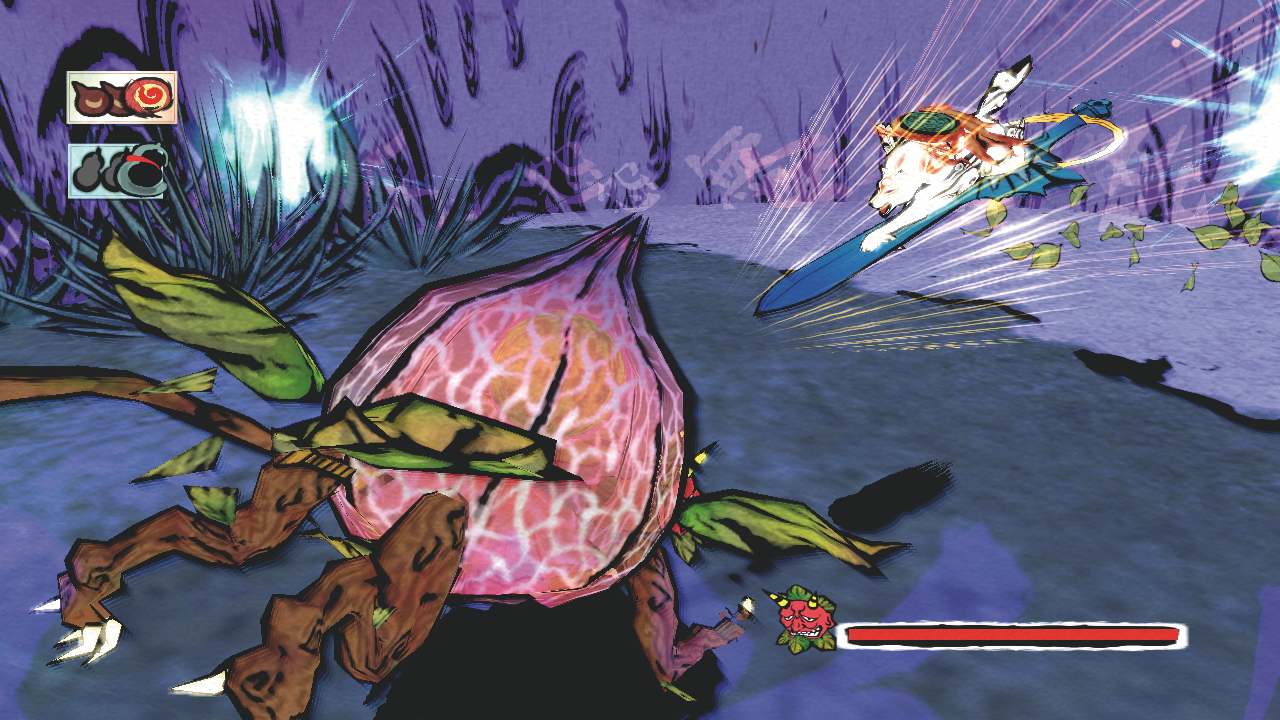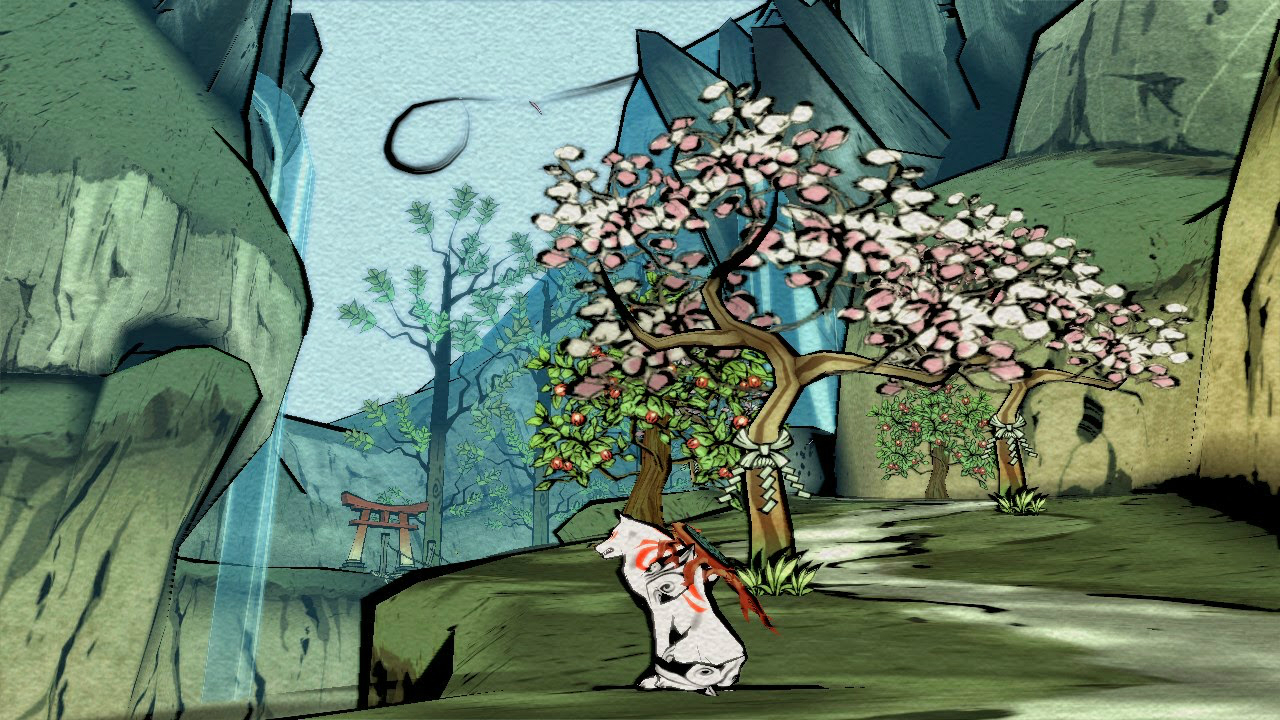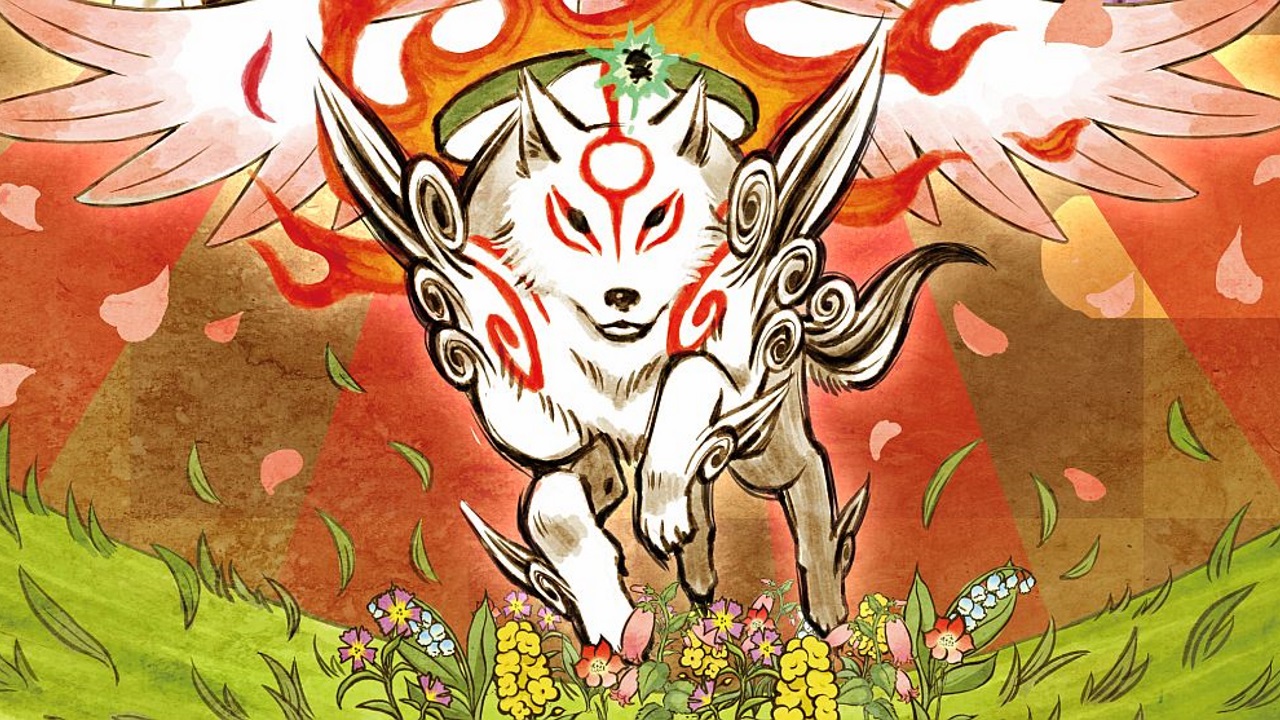GamesRadar+ Verdict
An astounding masterpiece that reaches new heights of brilliance thanks to the Nintendo Switch.
Pros
- +
Seamless drawing in handheld mode
- +
Motion controls are intuitive and sensitive
- +
Story never ceases to surprise and delight
- +
Will keep you coming back to find the collectibles after the main story is finished
- +
Pretty much begging for you to replay it
Cons
- -
Sometimes the characters spend too much time talking
Why you can trust GamesRadar+
Okami on the Nintendo Switch doesn’t just put you in the paws of the sun-god-in-wolf-form Amaterasu. It makes you feel like a god. Whether you’re sprinting through Nippon with lush, riotous flowers erupting from the ground with every step, feeding animals, or fighting tooth and claw against demons, there’s a boundless energy in Okami that sets it apart from other games on the Switch. Alone, having that kind of vibe would simply make Okami a good game. But add in the Celestial Brush - a divine paintbrush you use to draw sword slashes, conjure up bombs, or whip up a gust of wind - and you have a game that feels like it was always destined to be on the Nintendo Switch.
Expect the unexpected when it comes to...well, everything
Without going into too much detail about the main questline, what I can reveal is that you really won’t see what’s coming when it comes to the story. Okami begins with the unleashing of a terrible darkness that’s corrupts almost all of Nippon (otherwise known as feudal Japan). As the sun god Amaterasu, you’ll have to lift the curse by defeating monsters and bringing the Guardian Saplings back to life, mystical trees which restore nature to its rampant, glorious self in key regions and expels the infectious darkness. A mixture of platforming, fighting, mini-games, and puzzles await, all meant to be tackled with the Celestial Brush. That divine inkbrush is your main weapon and gives you the ability to draw symbols that summon lightning, bombs, wind, slow time, let you use vines to catapult yourself into the sky, create lilypads… it makes you a god. You can use Divine Instruments if you like, which is the fancy name for Okami’s weapons that fall into three types: swords, strings of beads which act like whips, or reflectors (which act similarly to swords). But the Celestial Brush will give you those ‘ah-HA!’ moments as you figure out yet another way combine brush techniques to reduce your foes to dust. Or flowers, in Okami’s case.

While Okami’s story is linear, it’s bubbling with mischief as it resists the idea that there’s a single big bad entity to defeat. Instead every single boss that you fight leads you deeper and deeper into what’s causing the curse that has enveloped Nippon. The people (and creatures) you meet are just as unexpected: there are dog warriors, an inn run by sparrows, a dojo master whose head rotates upside down, imp chefs, as well as many other colourful characters who will continue to surprise and delight through the entire, very, very long storyline. You’ll be taken to truly unexpected (and frankly bizarre) places which I won’t spoil here. But every single one will keep you coming back for more. With each brushstroke you learn new areas and objects become accessible, ones that you’ll have first stumbled across earlier, bemused at how you could ever find a way in. Okami’s depth is astonishing, meaning you’ll be retracing your footsteps and inevitably getting distracted to squeeze every drop of potential out of Nippon’s dense world.
The motion control is perfection
Playing Okami on the Wii way back in 2008 felt good, but it was a bit clunky. The chunky WiiMote had a tendency to not pick up on delicate motions, meaning you had to gesticulate enthusiastically (to say the least) if you wanted to draw, say, a bomb, or bloom a tree into cherry blossom. On the Nintendo Switch these motion controls have been updated and refined to make it as effortless and strangely elegant as if you really were channeling some kind of divinity to bend the world to your will. To start off, it’s incredibly intuitive: in docked mode you simply hold down the right bumper to pause the scene and tap Y to draw. Slashing at enemies needs only a sharp flick to draw a clean, straight line, and blooming trees with a delicate twist of your wrist makes it feel like you’re gently ushering those branches to bloom rather than madly rotating your entire arm like you had to do with the Wii.

As for playing Okami in handheld mode...my god. It’s seamless. Utterly seamless perfection. Unlike playing in docked mode, there’s no holding down the right bumper to pause the scene, no tapping Y to draw - all you do is place your finger on the screen, and the game automatically goes into drawing mode as you leave a trail of ink behind. There’s the tiniest of pauses when you lift your finger up, which gives you time enough to draw another line if you need to create a bomb, sprout up multiple trees by dotting the grass with ink, or just want to use your weapon’s special ink bullet attack. Having such a tactile connection to a game is rare. Using the Celestial Paintbrush feels as natural as if you really were a god. To truly get how joyous playing Okami can be, you’ll want to play in handheld mode. Trust me on this.
There’s plenty to keep coming back for
Granted, Okami’s map isn’t massive, but it is dense. Demon scrolls float around which you can jump into if you fancy a fight, giving you the chance to try out new moves or practice your brushstrokes. Waiting underground are clovers to dig up, plus there are 99 stray beads hidden in the game, which get you a mysterious prize when you find them all. Extra dog skins for Amaterasu unlock when you complete the game for the first time (yup, I said first time), which change depending on various things ranging from how many times you died to how much yen or demons fangs you collected. Oh yeah, and during your adventures you can try and feed 100% of each type of animal found throughout Nippon, or dedicate yourself to fishing to discover every type of fish. That’s not even mentioning the treasures to tick off your list, or the moves at the Dojo to learn, or the special one-off items you can buy with Demon Fangs…Okami is a goldmine for completionists. So once you complete the game there’s always more to do. A slightly intimidating amount, actually.
One of the only bad points I can think of - and trust me, I’ve been racking my brains to try and find one - is that sometimes the dialogue can go on for a bit too long. But that’s it. That is literally the only negative thing about Okami. It’s finally found its perfect console, blurring the line between player and game to an unmatched degree. So for $19.99/£15.99, with over 50 hours of exquisite gameplay, it’s a crime not to give it a go. So what in Amaterasu’s name are you waiting for? This is what the Nintendo Switch was made for.
Want to get a head start on Okami? Here’s 8 essential Okami tips to help you go from mundane mutt to celestial canine.
More info
| Genre | "Adventure" |
| Description | A remastered HD version of the 2006 PlayStation 2 game with with fully integrated HD graphics, 16:9 aspect ratio, and PlayStation Move support. |
| Platform | "PS3" |
| US censor rating | "Teen" |
| UK censor rating | "" |
| Release date | 1 January 1970 (US), 1 January 1970 (UK) |
While here at GamesRadar, Zoe was a features writer and video presenter for us. She's since flown the coop and gone on to work at Eurogamer where she's a video producer, and also runs her own Twitch and YouTube channels. She specialises in huge open-world games, true crime, and lore deep-dives.





